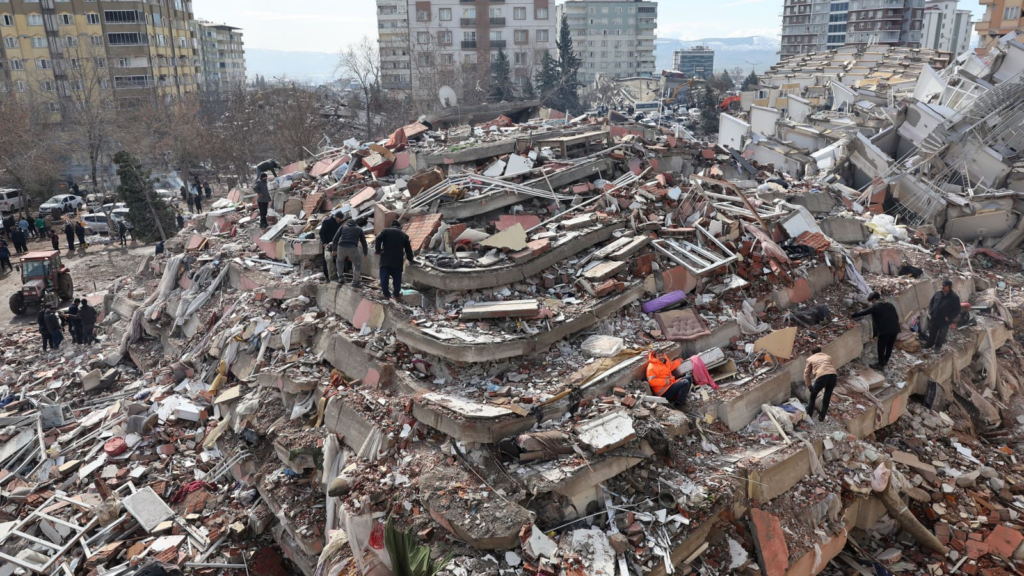
An earthquake struck killing about 50,000 people across both Turkey and Syria on February 6th. Following the earthquake, nearly 200 people have been arrested for alleged poor building construction, Turkey’s Justice Ministry said.
The earthquake caused the full collapse or serious damage of buildings, and the ministry said that 626 people were “suspects.” During the quake, some of the suspects died while police are still searching for the others. Turkey’s Justice Minister Bekir Bozdag said that on Saturday evidence had been collected at thousands of buildings. According to the country’s disaster agency, more than 5,700 buildings in Turkey have collapsed which has arised questions about the integrity of structures in some areas of the affected regions.
According to the New York Times, a university engineer examined the wreckage and found indications of weak concrete and insufficient steel reinforcements. In a preliminary report, he and his colleagues concluded that shoddy construction left the building vulnerable, even to smaller quakes. Construction industry experts say that for most of the past decade, contractors could freely choose which private companies to hire to inspect their buildings.
Following the arrests and investigations, the government has released little information about who is being investigated and why. But flaws in some of the buildings that fell were documented way before the quake. According to lawyers involved in the cases, in some of these buildings contractors paid fines for violating building codes, however no action was taken to evacuate or strengthen the vulnerable structures.
Cemal Gokce, a former president of Turkey’s Chamber of Civil Engineers, accused President Recep Tayyip Erdoganand, his ruling Justice and Development Party, of fostering a lax regulatory environment, which resulted in cities being more vulnerable to earthquake damage. “The government is trying to avoid responsibility by dumping it onto engineers and architects,” he said. “But the main culprit is the government because they put profits over the public interest.”
While on visits to the disaster zone, President Recep Tayyip Erdogan seemed to suggest that Turkey should improve its earthquake preparedness by saying, “It is highly important that we eliminate our shortcomings and fortify our strengths in light of past experiences.”
Turkey is a seismically active country and with a history of quakes, they’ve upgraded their building codes following a powerful tremor near Istanbul in 1999 that killed over 17,000 people. However, according to a 2021 parliamentary report, more than 7.8 million buildings constructed before the year 2000 are highly vulnerable to earthquakes.
Three weeks after these events, yesterday a 5.6 magnitude earthquake shook Southern Turkey. It caused some already damaged buildings to collapse and killed at least one person. More than 100 people were injured in Monday’s quake, which was centered in the town of Yesilyurt in the Malatya province. A father and daughter were trapped beneath the rubble of a four story building trying to collect their belongings. Turkey’s disaster organization (AFAD) urged people not to enter damaged buildings, saying strong aftershocks continue to pose a risk.
ABC News reported that World Bank estimated that the quake caused $34.2 billion in “direct damages,” which equals 4% of the country’s GDP in 2021. The recovery and reconstruction costs could be twice as large, and adding the GDP losses would also add to the quake’s cost. The World Bank also estimated that 1.25 million people had been left temporarily homeless.
If you would like to donate to help affected communities, according to Forbes, a good place to start research is on charitynavigator.org.




